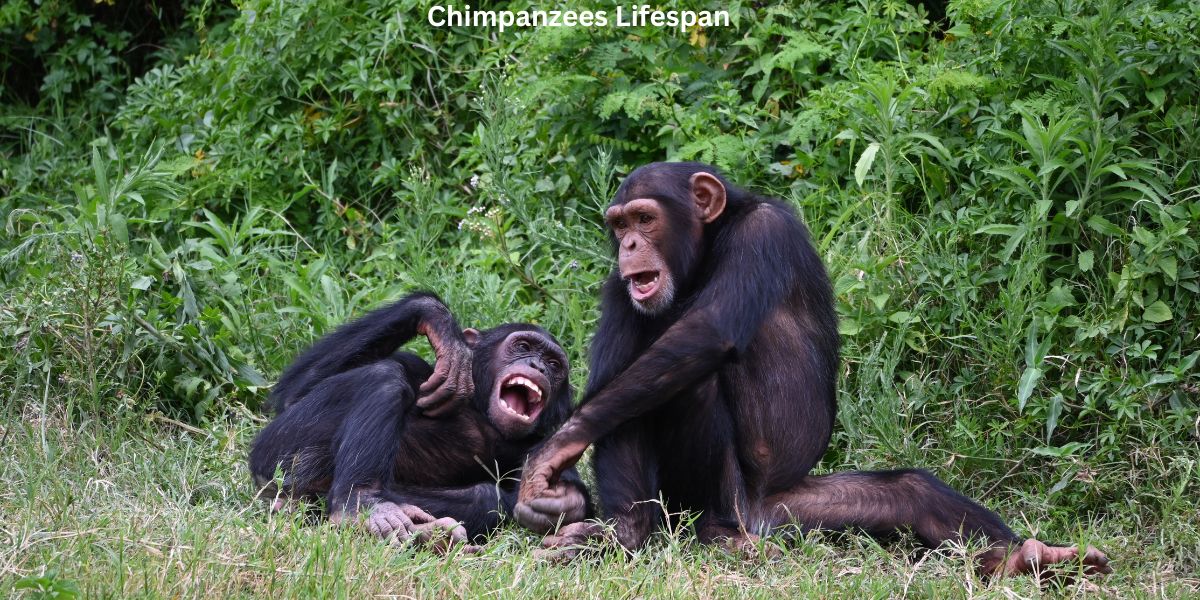Introduction
Chimpanzees are captivating creatures that share nearly 98% of their DNA with humans. Understanding their lifespan helps us analyze more approximately their conduct, fitness, and conservation desires.
The lifespan of a chimpanzee varies based on its living situations, genetics, and lifestyle. In this article, I’ll discover the different factors influencing chimpanzees lifespan, examine their existence expectancy within the wild as opposed to captivity, and solve commonplace questions associated with their sturdiness.
| Factor | Impact on Lifespan | Details |
|---|---|---|
| Environment | Wild: 33–40 years / Captivity: up to 60 years | Wild chimpanzees face more risks and challenges. |
| Diet and Nutrition | Better nutrition = longer lifespan | Captive diets are consistent, aiding longevity. |
| Health Care | Prolonged life in captivity | Regular veterinary care is available in zoos. |
| Social Structure | Reduces stress, supports longevity | Social bonds are essential for chimp health. |
| Human Impact | Can shorten lifespan in the wild | Habitat loss and poaching remain major threats. |
Key Takeaways
- Chimpanzees within the wild have a median lifespan of 33–40 years, encouraged through environmental elements and access to sources.
- In captivity, chimpanzees can live as much as 50–60 years, in way to hospital therapy and a stable food deliver.
- Genetics, food regimen, and social structure play sizeable roles in the lifespan of chimpanzees.
- Wild chimpanzees face threats like habitat loss, predation, and ailment, that can lessen their life expectancy.
- Captive chimpanzees revel in much less stress and consistent fitness monitoring, which frequently ends in extended lifestyles.
- Aging chimpanzees showcase similar signs and symptoms of ageing as human beings, which includes grey hair and slower mobility.
- Conservation efforts are essential for extending the lifespan of untamed chimpanzees by way of protective their natural habitats.
Introduction to Chimpanzee Lifespan
Chimpanzees generally live longer in captivity than within the wild. In their herbal habitat, chimpanzees have a median lifespan of approximately 33 to 40 years, although a few stays even longer. In captivity, with regular healthcare and nutrition, they can live as much as 50 years or greater. The document age for a captive chimpanzee is over 60 years!
Factors Influencing the Lifespan of Chimpanzees
Living Conditions: Wild vs. Captivity
- In the Wild: Chimpanzees inside the wild face diverse threats, along with predators, disease, and meals shortage, that can shorten their lifespan.
- In Captivity: Zoos and sanctuaries provide hospital treatment, normal food, and a secure surrounding, allowing chimpanzees to live longer.
Genetics and Health
Genetic factors play a function in lifespan, much like in humans. Some chimpanzees are naturally predisposed to stay longer, specifically if they don’t face many ailments.
Nutrition and Diet
Diet is essential for their health. Wild chimpanzees depend upon foraging, whilst the ones in captivity have greater constant get entry to vitamins, contributing to a longer life.
Social Structure and Stress Levels
Chimpanzees are social animals, and their lifespan can be affected by the quantity of social interaction they obtain. Stress from isolation or social hierarchies inside the wild can occasionally shorten their existence expectancy.
Threats within the Wild
Deforestation, poaching, and habitat loss are great threats to wild chimpanzee populations. Human activities have reduced their herbal habitat, impacting their health and toughness.
Interesting Facts About Aging in Chimpanzees
- Older chimpanzees show many getting older signs and symptoms similar to humans, which includes graying hair, slower moves, and reduced energy.
- Senior chimpanzees frequently play a reputable position in their social companies, occasionally offering guidance to more youthful participants.
FAQs on Chimpanzee Lifespan
What is the common lifespan of a chimpanzee inside the wild?
In the wild, chimpanzees commonly stay between 33 and 40 years.
How long do chimpanzees live in captivity?
With access to hospital therapy, chimpanzees in captivity can stay up to 50-60 years.
Do male and female chimpanzees have exceptional lifespans?
In general, girls may also live slightly longer than adult males, though the difference is not constantly huge.
What is the oldest age recorded for a chimpanzee?
The oldest recorded age for a chimpanzee is over 60 years in captivity.
How do human activities affect chimpanzee lifespan?
Deforestation, looking, and habitat loss pose severe threats to chimpanzees, affecting their health and toughness.
Conclusion
Chimpanzee lifespan varies, relying on whether or not they live inside the wild or captivity. While wild chimpanzees face numerous demanding situations that impact their longevity, those in captivity advantage from medical care, safety, and consistent vitamins.
Understanding those elements is vital to enhance conservation efforts and shield their natural habitats, making sure that chimpanzees can preserve to thrive both inside the wild and in managed environments.

